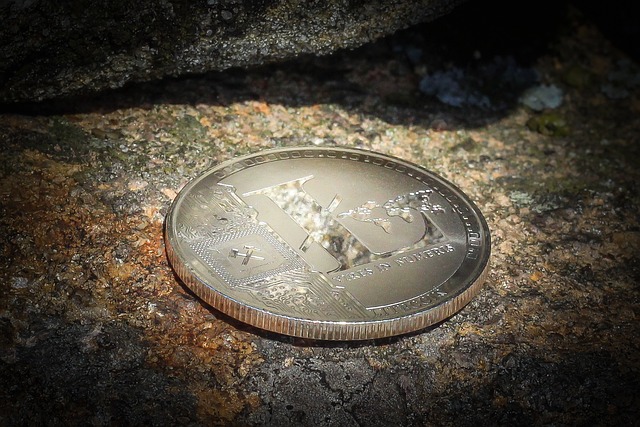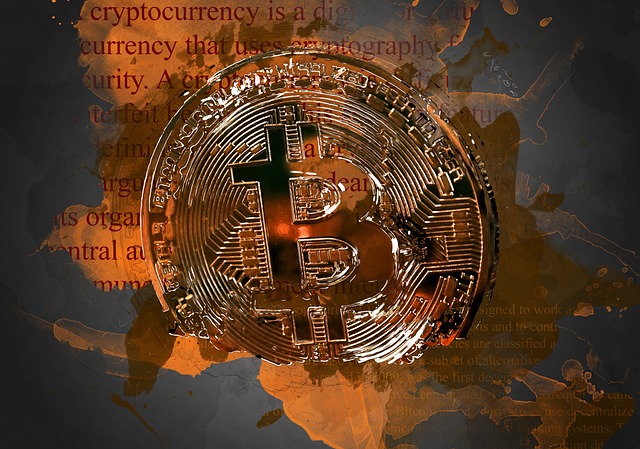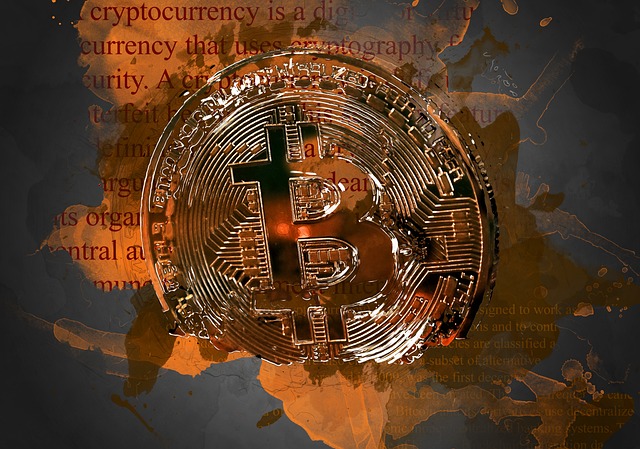Decentralized Finance Benefits: A Pathway to Financial Prosperity
Decentralized Finance Benefits: A Pathway to Financial Prosperity

Understanding the Power of Decentralized Finance
Decentralized finance, often referred to as DeFi, is revolutionizing the way we approach financial systems. Unlike traditional centralized systems that rely on intermediaries such as banks and governments, DeFi offers a new paradigm of financial control, autonomy, and accessibility. Through the use of blockchain technology and smart contracts, individuals now have the power to navigate their own financial journey without being restricted by the limitations imposed by centralized institutions.
With DeFi, individuals can now break free from the shackles of traditional financial systems and take control of their own finances. No longer do they have to rely on a third party to facilitate transactions or manage their assets. Through peer-to-peer transactions, individuals can engage directly with one another, eliminating the need for middlemen and reducing costs. This newfound freedom empowers individuals to make decisions that align with their own financial goals and priorities, enabling them to truly take charge of their financial future.
• DeFi allows individuals to navigate their own financial journey without relying on banks or governments.
• Blockchain technology and smart contracts enable this new paradigm of financial control.
• Peer-to-peer transactions eliminate the need for intermediaries, reducing costs.
• Individuals can make decisions that align with their financial goals and priorities.
Breaking Free from Traditional Financial Systems
Decentralized finance, also known as DeFi, is revolutionizing the financial landscape by offering an alternative to traditional financial systems. With DeFi, individuals can break free from the constraints and limitations imposed by centralized authorities. No longer do people have to rely on banks or other intermediaries to manage their funds or make transactions. Instead, they can take full control of their finances and participate in a truly peer-to-peer ecosystem.
One of the key advantages of breaking free from traditional financial systems is the reduction in dependence on middlemen and intermediaries. In traditional banking, individuals often have to go through multiple intermediaries to access financial services or transfer funds. This not only adds unnecessary costs but also increases the risk of fraud and delays. With DeFi, these intermediaries are eliminated, allowing for direct interactions between individuals. Transactions can be conducted swiftly and securely, without the need for third-party approval or intervention. This empowers individuals to have more control over their financial transactions and eliminates the unnecessary complexities associated with traditional systems.
Empowering Individuals with Full Control over their Finances
In today’s traditional financial systems, individuals often find themselves limited in their control over their own finances. They rely on intermediaries such as banks and financial institutions to manage their funds and make transactions on their behalf. However, the emergence of decentralized finance is changing the game.
Decentralized finance, or DeFi, empowers individuals by giving them full control over their finances. Through the use of blockchain technology and smart contracts, people can now engage in financial activities without the need for middlemen. This means that individuals can manage their assets, make transactions, and access various financial services directly, without any unnecessary hurdles or intermediaries getting in the way.

Reducing Dependence on Middlemen and Intermediaries
In the traditional financial system, individuals are often at the mercy of middlemen and intermediaries. These intermediaries can be banks, brokers, or other financial institutions that facilitate transactions and manage funds on behalf of the customers.

However, with the rise of decentralized finance (DeFi), individuals now have the opportunity to reduce their dependence on these middlemen and intermediaries. DeFi leverages blockchain technology to enable peer-to-peer transactions, eliminating the need for traditional financial institutions as intermediaries. By removing these middlemen from the equation, individuals can regain control over their own finances. They can make transactions directly with one another, without the need for a third party to facilitate the process. This not only empowers individuals but also allows for greater transparency and efficiency in financial transactions.
Unleashing the Potential of Peer-to-Peer Transactions
In today’s digital age, peer-to-peer transactions have emerged as a powerful force in the world of finance. The traditional financial system, with its reliance on intermediaries, has often been plagued by inefficiencies and high fees. However, peer-to-peer transactions provide a game-changing solution by allowing individuals to directly transact with one another, cutting out the need for middlemen.
One of the key advantages of peer-to-peer transactions is the elimination of unnecessary costs. By bypassing intermediaries, individuals can avoid hefty fees and enjoy more affordable financial services. This is particularly beneficial for those who are sending money internationally or making smaller transactions, as the savings can quickly add up. Furthermore, peer-to-peer transactions are typically faster and more convenient, as they remove the need for tedious paperwork and lengthy processing times. With just a few clicks, individuals can securely send and receive funds, empowering them with greater control over their finances.
Providing Access to Financial Services for the Unbanked
In today’s digital age, access to financial services has become increasingly vital for individuals around the world. However, there is a significant portion of the global population that is still unbanked, lacking basic financial services that many of us take for granted. For these individuals, obtaining a bank account or accessing credit can pose significant challenges, hindering their ability to save, invest, and grow financially. The advent of decentralized finance (DeFi) offers a ray of hope by providing access to financial services for the unbanked and empowering them to take control of their financial futures.
One of the key advantages of decentralized finance is its ability to eliminate the need for intermediaries, such as banks, in financial transactions.

Enhancing Financial Inclusion and Equality
In the traditional financial system, access to financial services has been limited to a privileged few, leaving a large portion of the global population without basic banking services. This lack of access to financial resources further widens the gap between the rich and the poor, perpetuating inequality. However, decentralized finance (DeFi) is set to change this narrative by enhancing financial inclusion and equality.
With the advent of DeFi, individuals from all walks of life can now participate in the global financial system without having to rely on traditional intermediaries like banks. By eliminating the need for middlemen, DeFi platforms empower individuals to take control of their own finances, allowing them to save, invest, and transact without any barriers. This has a profound impact on marginalized communities, as it provides them with a level playing field and equal opportunity to access the same financial services as the wealthier counterparts. The inclusive nature of DeFi ensures that financial services are no longer reserved for a privileged few, but rather, are accessible to all, fostering equality and empowering individuals to build a brighter financial future for themselves and their families.
Opening Doors to Global Opportunities and Markets
The emergence of decentralized finance has opened doors to global opportunities and markets, breaking down barriers that once limited individuals from participating in the global economy. With traditional financial systems heavily reliant on intermediaries and middlemen, many were excluded from accessing global markets due to high costs and stringent requirements. However, decentralized finance, or DeFi, has revolutionized these traditional systems, providing individuals with a new level of autonomy and freedom over their financial transactions.
Through DeFi platforms and protocols, individuals can now directly engage in peer-to-peer transactions, bypassing the need for intermediaries and reducing costs significantly. This democratization of global markets allows for the seamless exchange of digital assets, cryptocurrencies, and even the creation of new financial products. Moreover, with DeFi’s borderless nature, individuals can now access global markets regardless of their geographic location or financial background, unlocking a vast range of opportunities previously unattainable. From investing in international stocks to participating in decentralized lending and borrowing, the possibilities are endless. Opening doors to global opportunities and markets, decentralized finance empowers individuals and facilitates economic growth on a global scale.
Ensuring Security and Privacy in Financial Transactions
In the world of finance, ensuring security and privacy in financial transactions is of utmost importance. With the rise of digital technology, the risk of cyber threats and fraud has also increased significantly. Therefore, it is essential to adopt measures that can safeguard sensitive financial information and protect individuals from potential risks.
Various technological advancements, such as encryption and decentralized networks, have paved the way for more secure financial transactions. Encryption algorithms enable the conversion of sensitive data into an unreadable format, ensuring that only authorized parties can decipher the information. Additionally, decentralized networks distribute data across multiple nodes, reducing the risk of a single point of failure or hacking. These measures not only enhance security but also provide individuals with peace of mind, knowing that their financial transactions are protected from prying eyes.
Building a More Resilient and Transparent Financial System
In today’s rapidly evolving financial landscape, the need for a more resilient and transparent financial system has become increasingly evident. Traditional systems have often been criticized for their lack of transparency, which can lead to issues such as fraud, corruption, and market manipulation. By embracing decentralized finance (DeFi) principles, we have the opportunity to create a more robust and open financial ecosystem.
One of the key advantages of a resilient and transparent financial system is the ability to reduce risks and ensure greater stability. By embracing blockchain technology and smart contracts, transactions can be recorded in a secure and immutable ledger that is accessible to all participants. This eliminates the need for intermediaries and reduces the potential for errors or manipulation. Additionally, the transparency of these transactions enables greater accountability, as every transaction can be traced and audited, ensuring a higher level of trust among participants.
What is decentralized finance?
Decentralized finance, often referred to as DeFi, is a financial system that operates without the need for traditional intermediaries like banks or brokers. It utilizes blockchain technology to enable peer-to-peer transactions and smart contracts.
Why is breaking free from traditional financial systems important?
Breaking free from traditional financial systems allows for more autonomy and control over our finances. It reduces reliance on centralized institutions and opens up opportunities for innovation and financial inclusivity.
How does decentralized finance empower individuals with full control over their finances?
Decentralized finance gives individuals direct access to their funds and allows them to manage their finances without relying on third parties. It provides greater transparency and ownership over financial assets.
What are the benefits of reducing dependence on middlemen and intermediaries?
By reducing dependence on middlemen and intermediaries, we can eliminate unnecessary fees and delays in financial transactions. It also reduces the risk of fraud or manipulation by central authorities.
How does decentralized finance unleash the potential of peer-to-peer transactions?
Decentralized finance enables direct peer-to-peer transactions without the need for intermediaries. This not only facilitates faster and cheaper transactions but also empowers individuals to transact with anyone, anywhere in the world.
How does decentralized finance provide access to financial services for the unbanked?
Decentralized finance allows individuals without access to traditional banking services to participate in the financial system. With just a smartphone and an internet connection, they can access a range of financial services like loans, savings, and investments.
How does decentralized finance enhance financial inclusion and equality?
By removing the barriers of traditional financial systems, decentralized finance ensures that everyone, regardless of their background or location, has equal access to financial services. It promotes inclusivity and empowers individuals to build wealth.
How does decentralized finance open doors to global opportunities and markets?
Decentralized finance enables borderless transactions, allowing individuals to engage in global markets and access investment opportunities that were previously out of reach. It breaks down geographical limitations and fosters economic growth.
How does decentralized finance ensure security and privacy in financial transactions?
Decentralized finance utilizes cryptographic technology to secure transactions and protect user privacy. Smart contracts and encryption techniques ensure that financial transactions are tamper-proof and transparent while maintaining the privacy of individuals.
How does decentralized finance contribute to building a more resilient and transparent financial system?
Decentralized finance creates a system that is less prone to financial crises and disruptions. By removing single points of failure and increasing transparency, it promotes a more resilient and trustworthy financial ecosystem.
Todays Featured Product:
Buy, exchange and grow your crypto securely with a Ledger hardware wallet, combined with the Ledger Live app. It’s never been easier to keep your crypto safe and accessible. Buy direct from Ledger.com and get todays Special Offers Here.




